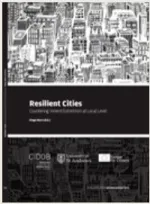Preventing violent radicalisation: Programme design and evaluation

One of the most severe problems faced by programmes designed to prevent violent radicalisation and extremism (PVE) is the question of how to show and ensure a positive impact according to the programmes’ goals. Attempts to suggest comprehensive evaluation tools for deradicalisation programmes coming from academia (e.g., Horgan & Braddock, 2010; Romaniuk & Fink, 2012; Williams & Kleinman, 2013) have not found their way into wide-scale practical implementation so far.
Nevertheless, without the development of methods to evaluate PVE programmes and to standardise programme design,1 the field is inevitably bound to remain fragmented, confronted with suspected inefficiencies, failure, or misconduct. Akin to any other complex social problem, terrorism and counter-radicalisation must be subjected to scrutiny to avoid backlash or waste of resources. Governments, practitioners and researchers need to be able to compare and differentiate programmes according to their type, goals and methods, but also their impact, proficiency and skills, in order to develop true “good practices”, to design and build new programmes based on well-established principles, and to improve existing programmes regarding identified mistakes or insufficiencies.